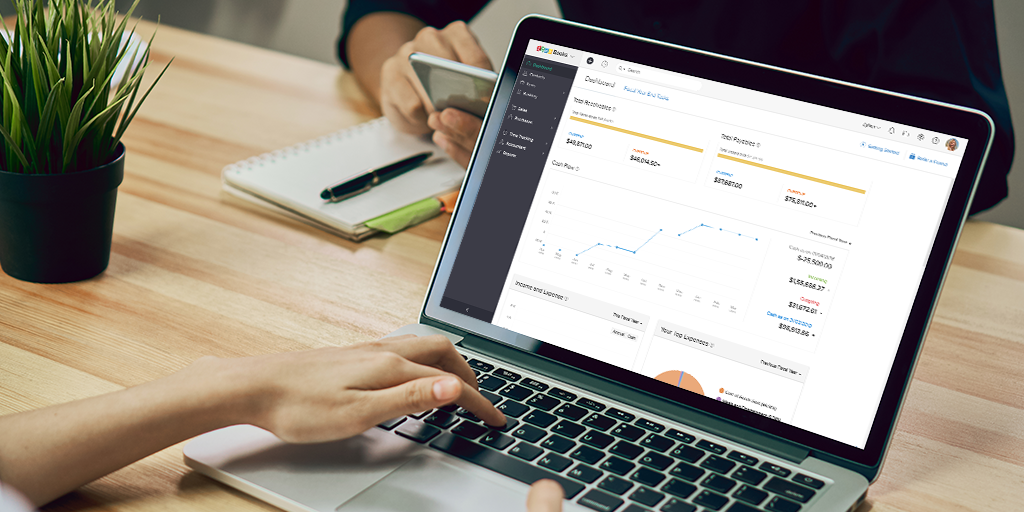Unlocking Efficiency: How Accounting Software Transforms Your Business Financials
In today's fast-paced business environment, efficient financial management is crucial for success. Many businesses, whether small startups or established enterprises, are recognizing the transformative impact that accounting software can have on their financial processes. By streamlining operations and enhancing accuracy, this technology provides a solid foundation for informed decision-making and strategic growth.
Accounting software for business goes beyond mere bookkeeping. It offers a suite of tools designed to simplify everything from invoicing and expense tracking to tax preparation and financial reporting. By automating routine tasks, companies can save valuable time and reduce the likelihood of errors, allowing them to focus on what truly matters: building their business and serving their customers.
Benefits of Accounting Software
Accounting software for business offers enhanced accuracy in financial reporting, significantly reducing the risk of human error. Manual bookkeeping can lead to mistakes, which can be costly for a business. With automated calculations and standardized processes, accounting software ensures that numbers are correct, which builds trust in financial statements and facilitates informed decision-making.
Another major advantage is the time savings associated with using accounting software. Automated data entry, instant report generation, and efficient tracking of expenses and income allow businesses to redirect their focus from tedious accounting tasks to core operations. This increased efficiency not only boosts productivity but also enables businesses to respond quickly to financial inquiries and challenges.
Furthermore, accounting software often provides valuable insights through advanced analytics and reporting features. By generating detailed financial reports, businesses can track performance metrics, forecast future trends, and make strategic decisions based on real-time data. This access to vital information empowers businesses to optimize their financial health and drive growth.
Key Features to Look For
When selecting accounting software for business, it is essential to consider usability. A user-friendly interface allows employees at all levels to navigate the system with ease, reducing the need for extensive training. Look for software that offers customizable dashboards and intuitive workflows, making it simple for users to enter data, generate reports, and access financial information quickly.
Another crucial feature is automation. Good accounting software should automate repetitive tasks such as invoicing, expense tracking, and bank reconciliation. This not only saves time but also minimizes the risk of human error. Automation can help to streamline your accounting processes, allowing your finance team to focus on more strategic activities that drive business growth.
Finally, robust reporting and analytics capabilities are vital. The right accounting software should provide insightful reports that help you understand your business's financial health. Look for tools that offer real-time data analysis, customizable reporting options, and even forecasting features to plan for future growth. These insights are invaluable in making informed financial decisions and optimizing your overall business strategy.
Choosing the Right Solution
When selecting accounting software for business , it is essential to assess your specific needs and goals. Different businesses have varying requirements based on their size, industry, and complexity of financial processes. Start by outlining the features that are most important to you, such as invoicing, expense tracking, or inventory management. This initial evaluation will help narrow down your options and guide you toward a solution that aligns with your operational demands.

Another crucial factor to consider is the user experience. Accounting software can vary significantly in terms of ease of use and accessibility. A straightforward, intuitive interface can enhance productivity and reduce the learning curve for your team. Additionally, consider whether the software offers cloud-based options, enabling access from anywhere and facilitating collaboration among remote team members. Reading reviews and seeking recommendations can provide insights into the user experience of different solutions.
Finally, budget plays a vital role in the decision-making process. While investing in quality accounting software for business is important, it is equally essential to find a solution that fits within your financial constraints. Evaluate the pricing models, including subscription-based fees or one-time purchases, and assess any additional costs for upgrades or added features. By balancing functionality, user-friendliness, and budget, you can make a well-informed choice that will ultimately enhance your business's financial management.